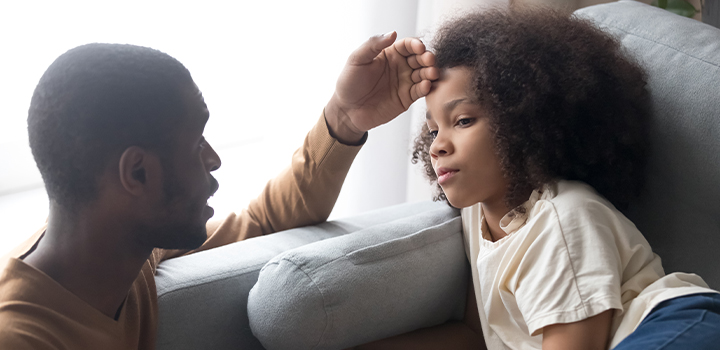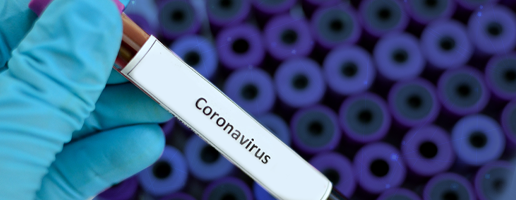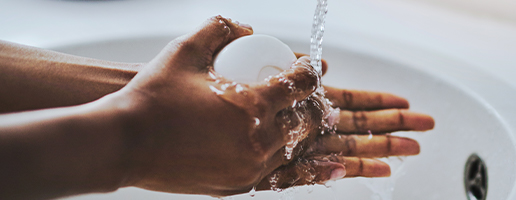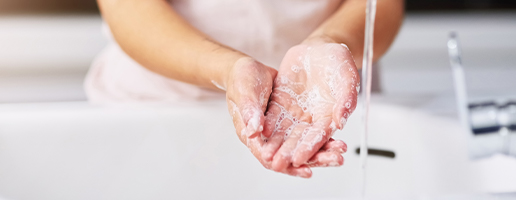COVID 19: Impact on children, pregnancy and breastfeeding moms

Our knowledge about COVID-19 is constantly evolving. Are children really less likely to become ill? If you're pregnant and have COVID-19, will your baby be born with it? Can you breastfeed while ill? Read on for the latest information.
To protect your child from COVID-19, it is essential to understand this new disease yourself. Globally respected sources of reliable, regularly updated information on COVID-19 include the World Health Organization (WHO), Centers for Disease Control and Prevention (CDC) in the United States of America and the National Institute for Communicable Diseases (NICD) in South Africa.To protect your child from COVID-19, it is essential to understand the nature of this new disease yourself. Globally respected sources of reliable, regularly updated information on COVID-19 include the World Health Organization (WHO), Centers for Disease Control and Prevention (CDC) in the United States of America and the National Institute for Communicable Diseases (NICD) in South Africa.
“One of the first things that you may think about as a parent is whether or not your own child is at risk,” says Discovery Health’s Head of the Centre for Clinical Excellence, Dr Noluthando Nematswerani.
“Any concerns that you may have are justified. It’s natural to feel this way. After all, children are vulnerable to so much in this world. Teach children preventive habits that curb the spread of illness. It’s fundamental in our response to COVID-19,” adds Dr Nematswerani.
“Since this is a new strain of human coronavirus, we are daily learning more about how it affects people of different age groups. So far, authorities have reported relatively few COVID-19 cases affecting children and pregnant women,” says Dr Nematswerani.
“This means that while it is possible that pregnant women and children can fall ill, most individuals who have tested positive for COVID-19 and received treatment have been adults and people who are not pregnant,” she adds.
How does COVID-19 affect children? What does the science show?
Most children who have tested positive presented with mild symptoms. So far, severe complications have been rare.
A World Health Organization report published on 24 February 2020 concluded that the disease appeared “relatively rare and mild” in children, with cases reported in people younger than 19 making up just 2.4% of the total number of cases. Only 2.5% of those younger than 19 had severe disease, and 0.2% had critical disease.
Dr Bruce Aylward, Assistant Director-General of the WHO spent two weeks in Wuhan in China’s Hubei province, the epicentre of the COVID-19 outbreak. In an interview with Channel 4 News on 5 March, he explained that much of the idea that children are likely to get infected with COVID-19 and less likely to get as sick, may be because the outbreak began in China at the start of the Chinese Spring Festival when schools were closed for two weeks. Due to COVID-19, school closures were extended.
Dr Aylward says: “So we don’t really know what would have happened if children were exposed to big doses of [the COVID-19 virus] in the school environment - would they have gotten sicker? We don’t know. Probably not in my mind. But would they have carried the virus back to their families and caused more outbreaks that way? Quite possibly.”
On 4 March, the most detailed study of the 2019 coronavirus was published. This study suggested that children are just as likely to become infected with the 2019 coronavirus as adults.
According to Nature: “The analysis - based on data from Shenzhen in China - looked at not only people who were infected with the virus, but also a large number of their close contacts, some infected and some not (391 people who were diagnosed on the basis of their symptoms, and 1 286 of their close contacts) to see whether these contacts tested positive for the virus even if they didn’t show symptoms.”
“Overall, the team found that children under 10 who had potentially been exposed to the virus were just as likely to become infected as other age groups, with between 7% and 8% of contacts of known cases later testing positive. The authors also found that people who lived in the same household as someone infected with the virus were about six times more likely get infected than those who made contact with an infected person in other settings.”
It still seemed that children’s symptoms were mild. What researchers were unclear on is the extent to which children transmit COVID-19 to others. More research is required.
“Of course, just as adults who are older or who have pre-existing medical conditions are identified as potentially at higher risk of contracting COVID-19, any child who has an underlying health or medical condition is also likely to be at increased risk,” says Dr Nematswerani.
Are pregnant women at risk of passing on coronavirus to their unborn child?
“For the time being, evidence is limited,” says Dr Nematswerani. “No authority is able to say with absolute certainty that COVID-19 can or cannot be directly passed from a mother to her unborn child. There is also no conclusive evidence around what impact this would have on the baby. Pregnant women are advised to take every precaution to stay healthy, practise preventive habits that limit the chances that they will contract COVID-19 and immediately inform their healthcare provider if they feel symptoms of this illness and follow their guidance from there on.”
“In summary, for now, the guidance for all pregnant women is to be cautious and take the best care of themselves that they can. In this way, they can minimise risk and protect their unborn child as much as possible. If a pregnant woman has any reason to be concerned, they should seek medical care as early as they can. Any respiratory symptoms, such as a cough or breathing difficulty, especially if accompanied by a fever, must be treated as soon as possible.”
- Read more key information from the Royal College of Obstetricians and Gynaecologists about COVID-19 and pregnancy.
- Read our article on COVID-19 and pregnancy for an in-depth summary of the current guidelines.
What is the risk for mothers who are breastfeeding?
For more information on coronaviruses:
For more information and support:
- Contact Discovery Health on 0860 99 88 77 for more information.
- Visit the NICD website.
Additional guidance
Belly Babies is an online Antenatal course made up of over 50 educational videos. Their goal is to provide expert antenatal knowledge and support to expecting parents throughout their pregnancy. Belly Babies offer online zoom classes that assist mothers to get the support they need during social distancing or self-isolation.
All medical information found on this website including content, graphics and images, is for educational and informational objectives only. Discovery Health publishes this content to help to protect and empower all South Africans by promoting a better understanding of COVID-19.
Find a healthcare professional near you
Find a doctor or hospital near you online or by using the Discovery app.
Related articles

Outbreak of the 2019 novel coronavirus
The 2019 novel coronavirus (2019-nCoV) has caused an outbreak of fatal respiratory illness first detected in Wuhan, China. This is a completely new strain with no vaccines available. The best way to prevent infection is to avoid being exposed to this virus.

Understand the Novel Coronavirus (COVID-19) and prevent infection
No country is immune to the spread of the Novel Coronavirus - officially named COVID-19 by the World Health Organization (WHO). The outbreak has reached pandemic proportions and been declared a global public health emergency.

Novel Coronavirus - wash your hands of the threat
As toddlers, we learnt to wash our hands. But, did we ever master the skill to the extent that is needed to wash pathogens off our hands, and save lives? Multiple studies show people don't wash their hands at the right times, in the right way or for the right amount of time. We contaminate the things and people we touch with the germs we carry on our hands.